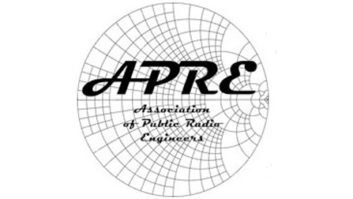
Gone will be the requisite dusty filing cabinet in the corner of the office; in its place will be accessible electronic files, placed online in an FCC database, thanks to public inspection file rules adopted by the Federal Communications Commission in its report and order Jan. 29.
As we reported, these changes are designed to take advantage of digital efficiencies and modernize the current means of viewing a station’s public files; the FCC says it is doing so while not imposing unnecessary burdens on radio stations. Similar public file rules were adopted for broadcast television stations in 2012.
But the order brings with it new requirements. Aspects that deal with political files have been an ongoing concern to broadcasters as the proposal moved along.
According to the FCC, the accessibility of public files is particularly important when it comes to political files. “While broadcast television remains the dominant medium for political advertising … political advertising on radio is also on the rise,” the commission wrote in its order.“Adding cable, satellite TV, and broadcast and satellite radio political file material to the existing online file database will facilitate public access to disclosure records for all these services and allow the public to view and analyze political advertising expenditures more easily in each market as well as nationwide.”
The commission is requiring that political file materials be uploaded to the online file “immediately” — 30 days after the order is officially published in the Federal Register, which hasn’t happened yet but is expected soon. “The contents of the political file are time-sensitive,” the commission stated. “Therefore, it is essential that there be no delay in posting political file materials to the online file.”
Congress amended political file requirements for radio, television, cable and satellite in 2002 with the adoption of the Bipartisan Campaign Reform Act, which clarified several requirements: that a station’s public political file include details on requests to purchase ad time on behalf of a political candidate and that these groups place any political advertisements in the political file, including the name of the person purchasing the time and a list of the board of directors of the organization.
The FCC order clarified a number of other issues:
• Stations do not have to upload existing political file material into the online file; the order only requires that political file documents be uploaded in future.
• To ease the transition to online, the first stations that must comply are commercial stations in the top 50 markets with five or more full-time employees.
• Online file requirements for all other radio stations will commence on March 1, 2018. The FCC defines those as NCE stations, commercial stations in markets below the top 50 or outside all radio markets, and commercial stations in the top 50 markets with fewer than five full-time employees.
• Stations are only required to upload those public file documents that are not already on file with the commission or that the commission does not currently maintain in its own database.
• The commission chose not to adopt new or modified public inspection file requirements in this proceeding. “Our focus is simply to adapt our existing public file requirements to an online format in a manner that appropriately reflects the differences among the services and that minimizes the burden for all affected entities,” the FCC stated in the order.
• All entities are required to place a link to the online public file on their website home pages, though groups are not required to make on-air announcements regarding the change in location of their public file.
The commission has also taken steps to ensure that the online file will be capable of accommodating the expected significant increase in network traffic. Those steps include the FCC’s transition to a cloud-based computing system to manage the online public file database, the ability to place a document in multiple files using a single upload, and creation of an API that can connect theonline file database to third-party web hosting services.
Concerns were raised by a number of groups before the final order was issued. Some felt that wider availability of political file documents may encourage the filing of complaints by individuals unconnected to the local community, and that smaller-market stations would be overly burdened by the online upload requirement. The FCC took note of the latter issue when it released the final order.
In addition to broadcast radio and satellite radio stations, the decision also affects cable and DBS entities.
You can read the full order here (PDF).












